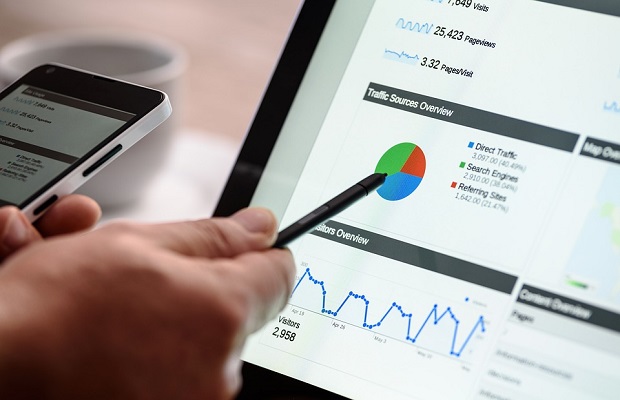A small business’s online reputation impacts its overall success, which is why 88% of small businesses monitor their online reputation at least quarterly. Two-thirds of small businesses (66%) use social media to accomplish this task.
Small businesses on a budget need access to platforms that are low cost and high impact. Social media checks both of these boxes.
Nearly half (48%) of small businesses also use other platforms to monitor online reputation, such as search results and third-party reviews.
Key findings:
• 54% of small businesses use in-house employees to monitor their online reputation and 27% use PR firms and/or online reputation management agencies.
• 34% use online tools, such as Google Alerts and 22% use social listening tools, such as Hootsuite, to monitor their online reputation.
• Millennial business owners ages 18 to 34 use digital tools (69%) almost as much as human resources (68%).
Although social media can be a powerful tool, experts urge small businesses to also use other platforms, such as search results and review sites such as Yelp.
Nearly half of small businesses that use social media (48%) also use other platforms to supplement their monitoring efforts.
“You have to monitor social media, but you also need to go beyond it to effectively monitor your online reputation,” said John Gottschall, CEO of Neumann Paige Inc., a reputation management firm.
Small Businesses Rely on In-House Employees or Reputation Management Agencies to Monitor Online Reputation
People are still the primary resource small businesses use to monitor their online reputation, the report found. Forty-four percent of small businesses (44%) use only human resources, such as in-house employees and agencies, to monitor their online reputation.
Twenty-six percent of small businesses (26%) use only digital resources, including online reputation management tools, third-party review sites, and social listening software.
Finally, 30% of small businesses use a combination of human and digital resources.
Overall, the online reputation monitoring tools small businesses use are:
• In-house employees (54%)
• Online reputation management tools, such as Google Alerts (34%)
• Online reputation management agencies (27%)
• Third-party reviews sites, such as Yelp (26%)
• Social listening tools, such as Hootsuite (22%)
“Digital tools provide the information that needs to be interpreted, but people, whether an agency like ours or someone in-house, become responsible for managing the information these tools collect,” said Ken Wisnefski, CEO of WebiMax, an online reputation management agency.
Millennial Small Business Owners More Likely to Use Digital Tools to Monitor Online Reputation
Using digital reputation management tools is popular among younger small business owners.
Millennial-owned and -managed small businesses are about evenly split in their use of digital resources (69%) and human resources (68%) to monitor their online reputation.
Generation Xers, however, are more likely to use human resources (75%) than digital resources (57%), and baby boomers are also more likely to use human resources (81%) than digital (34%).
These findings suggest a shift as more small businesses trend toward digital resources to supplement their staff’s work or hire PR firms to monitor their online reputation.
Clutch’s 2019 Small Business PR Survey included 529 small businesses from across the U.S.
